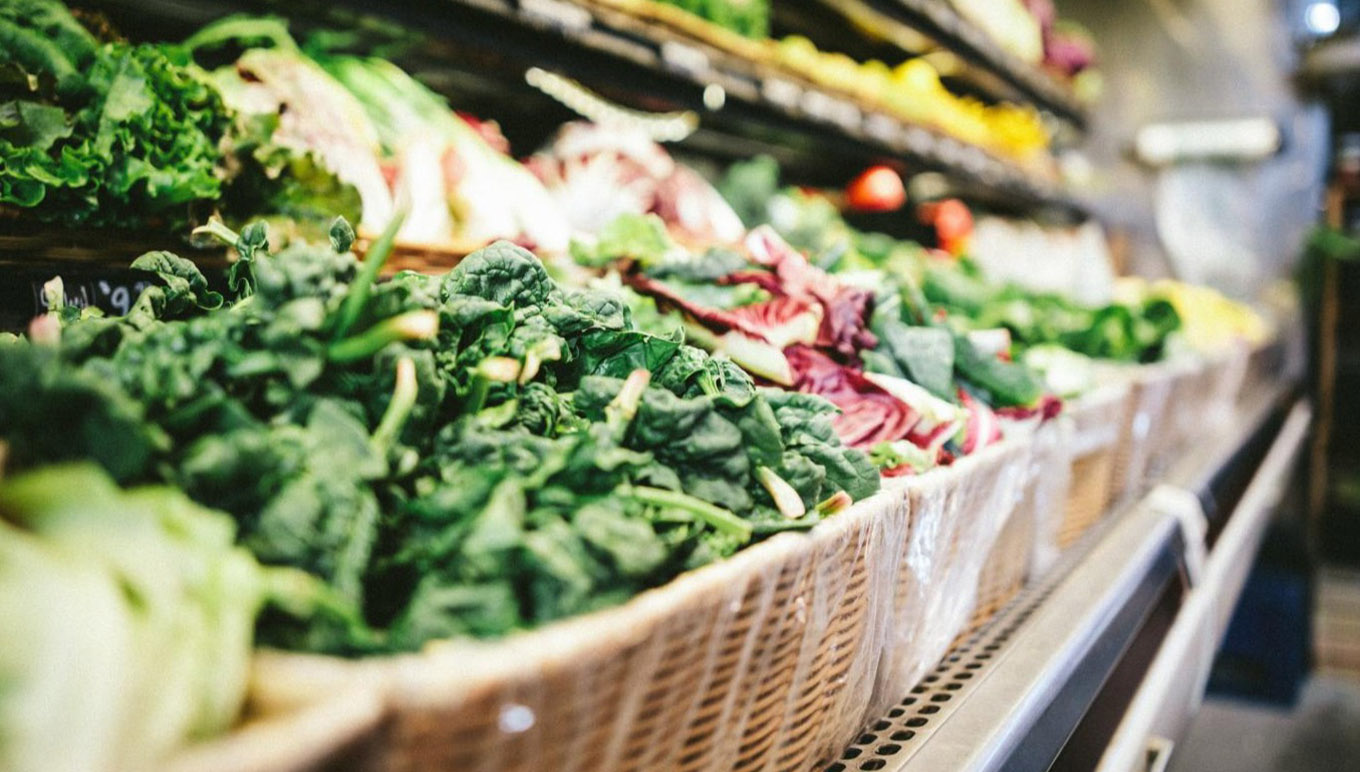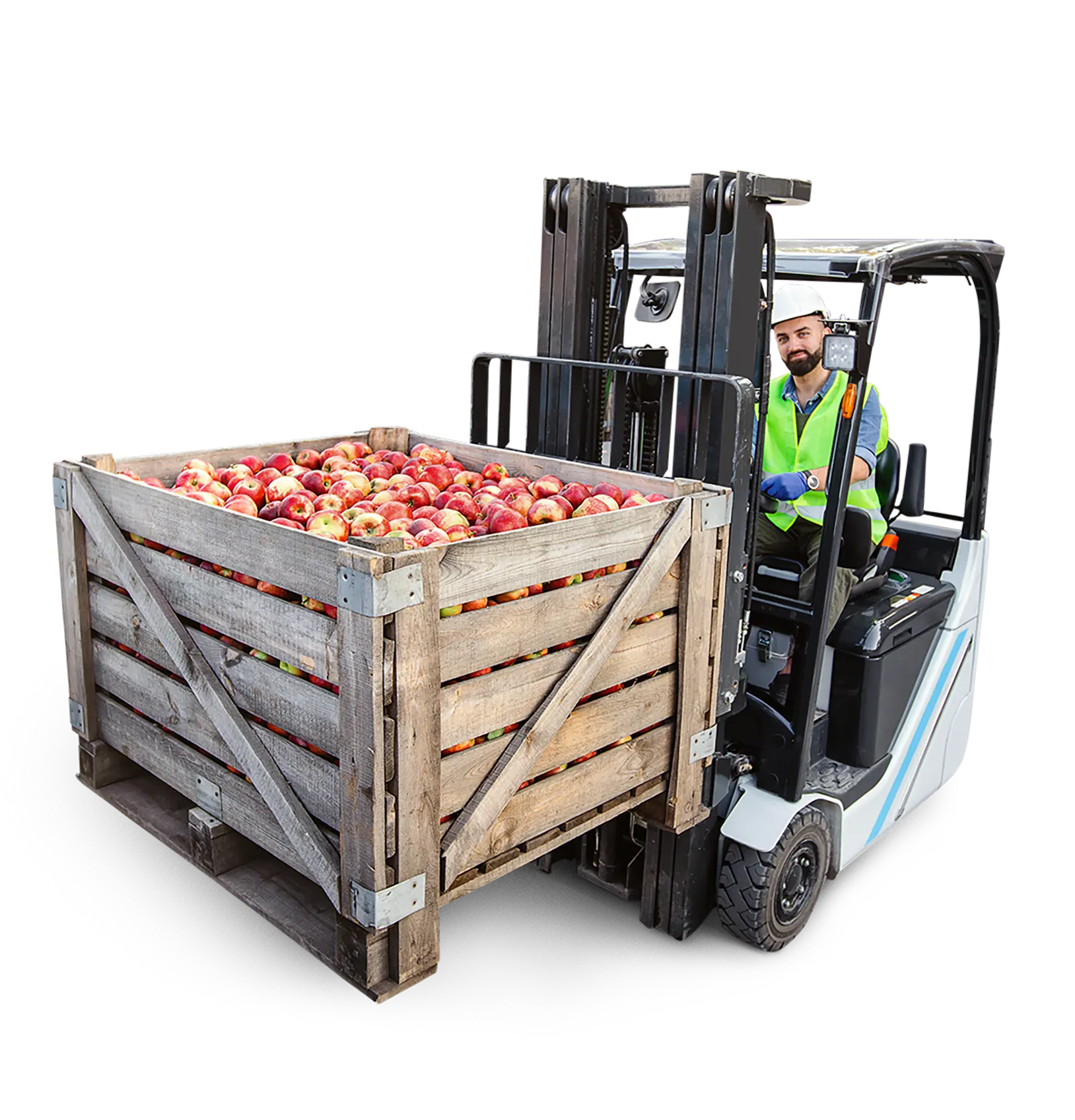Featured in this post
Full Recap of the 2022 Aptean Food and Beverage Symposium
Full Recap of the 2022 Aptean Food and Beverage Symposium
16 Sep 2022
 John McCurdy | Senior Content Writer, Marketing
John McCurdy | Senior Content Writer, Marketing
The 2022 edition of Aptean’s Food and Beverage Symposium is now in the books. The day’s packed agenda of compelling presentations and discussions delivered on the promise of enriching and engaging thought leadership that industry professionals have come to rely on from our speakers and company representatives.
Our theme this year, “The Right Recipe – Opportunities for Innovation and Navigating a Dynamic Market,” reflected the ever-evolving nature of the food and beverage industry and how technology is unlocking improvements and helping businesses satisfy consumer and regulatory demands. We heard from a variety of experts who spoke on hot-button topics of the day, including shifting product preferences, sustainable manufacturing, supply chain resilience and more.
If you couldn’t attend live or are only now learning about this latest iteration of our much-anticipated virtual event, don’t worry—we’ve got you covered. Below is a brief recap of each of our sessions, and you can also watch the recordings of each on demand at your convenience.
Roll Up Your Sleeves: A Welcome from Aptean CEO TVN Reddy
After Aptean’s own Chris Harris, director of sales enablement and emcee extraordinaire, got the morning kicked off, CEO TVN Reddy issued an official welcome to attendees. His introduction explained what viewers could expect from the day’s programming and the “why” behind our commitment to not only the food and beverage industry but also the creation of top-tier content like this very Symposium.
Reddy noted Aptean’s track record in serving the market and keeping up with the trends of the day, including traceability, sustainability and emergent consumer tastes. He also called attention to our teams’ in-depth expertise gained through decades of hands-on work and superior technical training, all of which leads to better outcomes for our clients.
Finally, Reddy stressed our company’s future-focused mindset, which is echoed in our slogan Ready for What’s Next, Now®. This set the table for our first keynote speaker, IDC Vice President Simon Ellis, who walked everyone through the findings of the latest global trends report commissioned by Aptean.
IDC Presents the 2022 Global Food and Beverage Industry Trends Report
Hall began by noting the important distinction in his approach to analyzing survey data—that is, he looks for what the “survey means” rather than just what the “survey says.” He emphasized the importance of not only looking at the data, but delving deeper to truly understand what the results say about the changes that the industry is undergoing and what the direction will be moving forward.
The first topic covered was the external pressures that food and beverage businesses are currently facing, and rising inflation took the top spot ahead of other concerns like geopolitical affairs, labor shortages and changing consumer expectations. Ellis noted that inflation is impacting both sourcing of raw ingredients as well as pricing and profitability, which explains why it’s so top-of-mind.
Additionally, sustainability was identified as not only the top priority for responding business professionals over the next year, but also the biggest focus for risk mitigation. For a food and beverage company, being able to demonstrate consistent efforts on this front leads to broader brand appeal, cost savings through waste reduction and a crucial competitive advantage over organizations that lag behind.
The need for better supply chain visibility was recognized as the biggest gap to be addressed, which makes sense given that disruptions continue even in the post-pandemic era. Ellis also pointed out that a lack of digital competencies or awareness have moved down the list in recent years, with a new challenge of labor and talent shortages rising to take that place.
Remote work capabilities and monitoring, along with process automation, were mentioned as opportunities to overcome the barriers to digital transformation that companies currently encounter. Other technologies, including artificial intelligence (AI) and cloud ecosystems, were also called out for their potential to impact the industry over the next five years.
A full 50% of respondents reported that their business plans to increase spending on technology in the near future, with another 33% saying that their level of investment would remain consistent going forward. There was also a marked increase year-over-year in terms of food and beverage companies considering a move to cloud solutions, surging from just 15% in 2021 to 25% in 2022.
A full breakdown of the IDC report will be published in the coming weeks. You can also download the full report or watch the session recording.
Discussing Consumer Demands with Keynote Speaker and Celebrity Chef Damaris Phillips
After Chris Harris provided a short transition, Aptean Vice President of Sales Sean Nappo introduced the second keynote speaker for the day, celebrity chef and Food Network star Damaris Phillips. Her enthusiasm and passion for food shined from the get-go, as she described her family-focused upbringing and eventual realization that she, too, could make her living in the culinary arts with a start at a small Kentucky community college.
She leveraged her education to gain internships and exposure to a variety of cuisines and cooking methods, and then faced a new challenge when she met her husband, who is vegetarian. While at first it seemed like a difficult challenge to overcome given her love for the often meat-centric Southern dishes she grew up on, she soon discovered that she could grow as a chef by crafting dishes for him as well as her gluten-free friends and relatives with nut allergies.
Phillips also shared insights on sustainability, calling out new farming techniques that help preserve the soil and the benefits of hydroponic greenhouses that use alternative substrates. She’s also a big believer in recyclable and reusable packaging while also promoting composting at home as a way that everyone can help preserve our planet for future generations.
As for technology’s role in the food and beverage industry, Phillips recognizes the value of solutions that can quickly and effectively process large amounts of information, which leads to more informed decision-making and positive impacts on businesses’ bottom lines. She’s a self-proclaimed “data nerd” and knows that we’re only scratching the surface in terms of what will be possible in the future.
And the one ingredient she couldn’t do without in the kitchen? Put on the spot, Phillips went with milk, which she loves with cornbread (her delicious Cornbread & Sweet Milk recipe can be found here), as well as for its use in yogurt and white gravies. Watch the full session recording for more.
Getting Leaner and Greener: Paving the Path to a Sustainable Industry with Jack Payne
As Aptean’s vice president of solutions consulting for the food and beverage market and an industry veteran of more than 30 years, Jack Payne has seen many trends come and go in his time. The current push for more sustainable sourcing and manufacturing practices has definitely caught his attention as a development that’s on the rise and here to stay—and it has implications at every step along the supply chain.
Payne began his presentation by referencing the results of the IDC survey covered earlier in the day, which indicated that focusing on sustainability is both a top business priority and risk mitigation strategy. In particular, he called attention to the fact that sustainability has consistently ranked highly over the past few years, claiming the No. 1 spot on the list of priorities in both 2020 and 2021 as well.
The motivating factors of meeting consumer demands, achieving a competitive advantage, improving financial performance and ensuring compliance are obviously a significant contributing factor in this development. Current efforts to minimize environmental impacts, including reduction of waste and spoilage; recycling and repurposing of materials; and implementation of eco-friendly packaging strategies have been effective, but more improvement is necessary.
That’s especially true if the food and beverage industry is going to meet the United Nations’ definition of sustainability, which centers on a system that delivers food security and nutrition for all in such a way that future generations are not compromised economically, socially or environmentally. Given that as much as 40% of all food is wasted—and two-thirds of that is still edible—companies and consumers alike can do much more in terms of good stewardship for the planet.
Payne also covered some of the many ways that digital transformation can drive sustainability. It begins with a robust, industry-specific ERP solution as the foundation, providing real-time paperless data collection, actionable insights for better decision-making and a single source of truth for the entire organization.
Meanwhile, supplementary solutions offer additional value, such as recipe optimization via a product lifecycle management (PLM) system; increased yield and utilization through enterprise asset management (EAM) and overall equipment effectiveness (OEE) software; and proper alignment of supply and demand with purpose-built forecasting and planning functionalities.
All this together demonstrates the potential for technology to enhance and reinforce sustainability initiatives undertaken by food and beverage companies. The benefits—including increased revenue and reduced losses through expired materials and faulty manufacturing processes—can make a difference for your business’s bottom line, as well as your brand reputation and popularity with today’s shoppers.
For more on sustainability, be sure to check out our Sustainable Food Production and Distribution Playbook. You can also watch Jack Payne’s full session recording on demand.
R.L. Schreiber’s Sous Chef: Aptean Acting as Partner in Business Transformation
This relatively brief but nonetheless informative and entertaining session featured Bill Macek, a senior solutions architect at Aptean, and Yorck Haase, IT director for Aptean client R.L. Schreiber. To start the discussion off, Haase gave some background on his company, a producer of spices, seasonings and food bases founded 55 years ago and operating via a manufacturing facility in Lebanon, Kentucky; headquarters in Ft. Lauderdale, Florida; and nationwide network of distributors (or “purveyors”).
As users of Aptean Food & Beverage ERP since 2011, R.L. Schreiber is now working with Aptean’s teams to explore the next steps in its digital transformation, including the potential incorporation of “beyond ERP” solutions like PLM, OEE, business intelligence and electronic data interchange (EDI). This is being conducted through in-person executive business reviews (EBRs) that help set the direction going forward for both client and provider.
“What I particularly liked about the process is that it wasn’t just R.L. Schreiber learning about Aptean’s capabilities—it was also Aptean learning about us and being able to help us address the specific areas we needed to focus on,” Haase said. “It was more of a collaborative approach. That’s where it helped tremendously, and it allowed me to build a roadmap that dovetailed with our strategic business plan as a company.”
A more in-depth breakdown of R.L. Schreiber’s journey with Aptean as a technology provider will be published in the coming weeks. You can also watch the session recording.
Remaining Resilient in the Face of Disruptions: A Roundtable on Technology
The last session for the day was the much-anticipated panel discussion hosted by Jack Payne focusing on remaining resilient and building stronger internal processes, technological foundations and supply chain structures in a world of increasing disruptions. Our guests included Aaron Hand, editor-in-chief of ProFood World; Erin Hallstrom, digital director for Food Processing; and Major Williams, a renowned IT consultant with extensive experience in the food and beverage industry.
Each panelist took the lead in answering a key question tailored to their expertise, with Hand first taking on the topic of how automation can unlock greater efficiency through applications in packaging, supply chain management and food safety. Then, Hallstrom addressed ongoing labor shortages by talking about the need for better outreach and marketing on the part of food and beverage manufacturers, who have sometimes lagged in this vital practice for attracting and retaining talent.
Finally, Williams discussed the considerations facing food and beverage businesses that are choosing whether or not to move their systems and data to the cloud, explaining how far the technology has come in terms of stability to ultimately afford several key advantages for those companies that choose this route. All involved seemed to agree that technology will continue to play an increasingly prevalent role in the industry going forward.
“Moving to a cloud structure, the provider invests in the infrastructure—they have to—in order to maintain integrity for their customers,” Williams said. “They have to be very cybersecurity-aware. They have to make that commitment, so if your business can’t employ a full-blown cybersecurity staff, a cloud option can be a good fit for you.”
Complete coverage of the roundtable will be published in the coming weeks. You can also watch the full session recording.
Aptean: Trusted Provider of Software Solutions and Much, Much More
Our annual Food and Beverage Symposium is a testament to the dedication of our business to the food and beverage market. Each year, we strive to gather together diverse voices to speak on the most significant and timely topics, and the 2022 lineup didn’t disappoint, providing keen insights and great best practices advise for industry professionals in a variety of roles. If in the UK, follow our Aptean Accelerate event for more details; read the recap available now.
Our award-winning software incorporates unique, industry-specific technologies built on the Microsoft Dynamics 365 Business Central platform, which lends the interface a sense of familiarity for users and maximizes accessibility. For even more flexibility, we encourage those looking to deploy Aptean Food & Beverage ERP to consider cloud implementations on a Software as a Service (SaaS) model.
To learn more about any of our best-in-class solutions for food and beverage businesses, contact us today. You can also schedule a personalized demo to see the software in action.
Creating a More Sustainable Business
Sustainable food production and distribution is easier to achieve when broken down into a play-by-play strategy. Aptean has collated key plays to help optimise your sustainability strategy.



